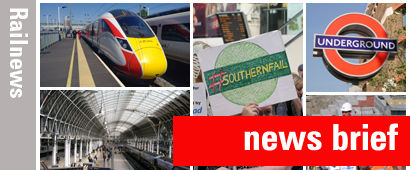THE Government must decide the fate of most English rail franchises by Sunday, when the Emergency Measures Agreements which came into force on 23 March run out.
However, transport secretary Grant Shapps refused to reveal what could happen when he was questioned by the Labour/Co-op. MP for Oldham West and Royton, Jim McMahon, saying only that: ‘As the hon. Gentleman points out, it is the case that the EMAs, as they are called, come to an end quite shortly. I do not think the House would realistically expect me to stand here and carry out those negotiations in public, but I reassure him that I will certainly return to make a statement in the House as soon as there is something to say.’
The EMAs provided a temporary financial umbrella for the franchises, as their revenues fell to less than 10 per cent as a result of the lockdown, with the government paying all the costs and also collecting revenue. It has been paying a management fee to each franchise, and the total cost of keeping the passenger railways running has been put at £3.5 billon so far.
As things stand, the Department for Transport already controls LNER and Northern, while FirstGroup’s Great Western Railway is the only franchise to have been given an extension to its EMA so far. This will now last until at least 26 June next year.
Mr Shapps told MPs that passenger figures had been rising again, saying: ‘Some 62 per cent of workers across the country are now going back to work. That is the highest level since the crisis began. In particular, the figure for last week—the week commencing 7 September—was 42 per cent back on our national rail services.’
Another deadline will loom next month, because the separate agreement to support Transport for London runs out on 17 October.
Transport minister Andrew Stevenson said ‘The Department regularly engages with Transport for London and the Mayor, including in relation to understanding the impact of Covid-19.’
When pressed, he added: ‘The Government agreed a £1.6 billion funding package in May. But let us be clear that Transport for London’s finances were in trouble well before Covid-19, with a projected deficit of £220 million last year and £422 million the year before. Many of the financial problems can be directly traced to poor decision making by the current Mayor of London.’


